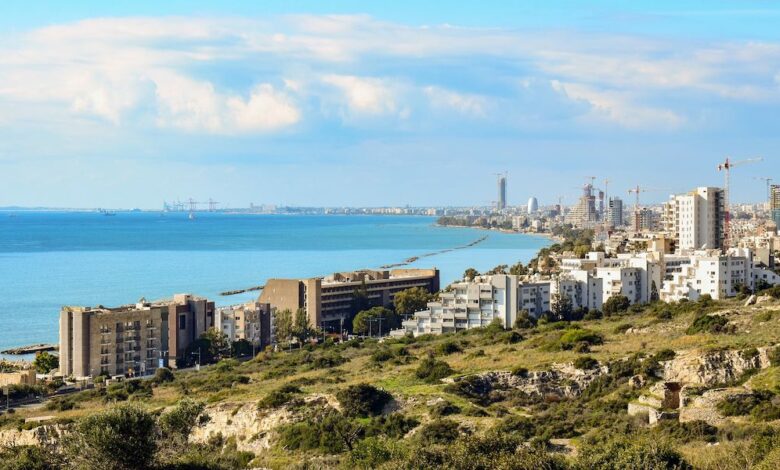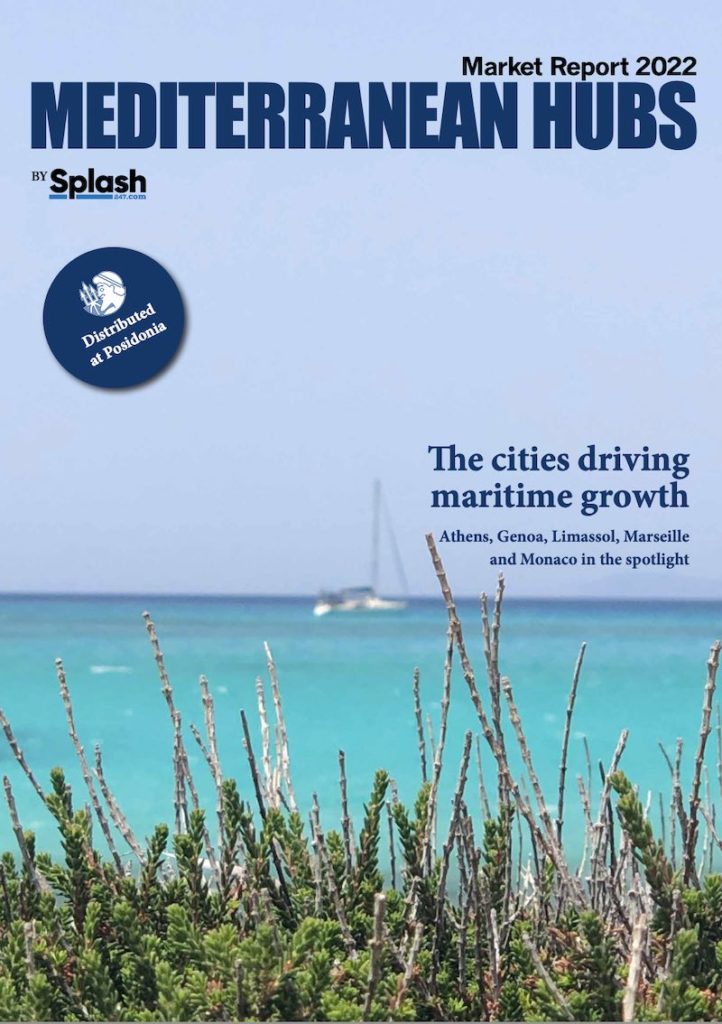Limassol: Dawn of a European champion

Major shipping conference, Maritime Cyprus, is back. Splash identifies how the island has all the right maritime ingredients to prosper.
The strategically located island of Cyprus, third-largest in the Mediterranean, has been an important trading hub and point of exchange between different cultures since antiquity, meaning it’s no surprise that the country is home to a thriving, cosmopolitan centre of the international maritime industry today with Limassol (or Lemesos in Greek) as undisputed capital of that business.
Really little more than a town with only just over 100,000 inhabitants, Limassol enjoys the distinction of being the leading third-party shipmanagement centre in Europe and one of the most important worldwide, with all the ancillary services one would expect to go alongside, as well as also houses the administration of the EU’s third-largest shipping register, ranked 11th internationally, and a port recently re-energised by privatisation.
Limassol’s modern shipping fortunes really began some 50 years ago when a handful of German shipping names – including Klaus Oldendorff, Bernhard Schulte and Heinrich Scholler – first chose Limassol as a suitable low-tax base from which to manage their fleets, the combination of easy access to the island’s central mountains for skiing and an unspoilt Mediterranean coastline providing a highly enviable lifestyle; Norwegian tanker magnate John Fredriksen also chose to obtain Cypriot nationality and base some of his operations for a short time in the city. This injection of north European expertise served to galvanise the local shipowning community, also acting as a catalyst for improvement of the Cyprus flag, which in those days was seen as a low-cost refuge for older Greek and Levantine tonnage of dubious quality.
The combination of easy access to the island’s central mountains for skiing and an unspoilt Mediterranean coastline provide a highly enviable lifestyle
Cyprus’ accession to the European Union in 2004 brought a further step-change in quality of the flag, while at the same time many of the shipmanagers based in Limassol rode the ‘super cycle’ of the early 2000’s to became shipowners in their own right, overseeing ambitious newbuilding programmes, mostly in China and almost all of innovative and highly environmentally friendly tonnage.
Today Limassol has one of the most dynamic national shipping administrations in the EU, which in turn works closely with the Cyprus Shipping Chamber (CSC), representing some 200 maritime-related companies based on the island, and the Cyprus Union of Shipowners (CUS), representing overseas owners – mainly Greek – flying the Cyprus flag, both associations based in the city as well.
Together these three bodies wield considerable influence within EU and global shipping circles, as evidenced by the number of Limassol-based shipping figures now occupying key roles in international associations. Philippos Philis, founding chairman and CEO of Lemissoler Navigation, is current president of the European Community Shipowners’ Associations (ECSA); Columbia Shipmanagement’s Mark O’Neil is president of the international shipmanagers’ association InterManager; CSC president and Interorient CEO Themis Papadopoulos is vice-president of the International Chamber of Shipping (ICS); and Tototheo Maritime joint CEO Despina Panayiotou Theodosiuou is outgoing president of WISTA (Women’s International Shipping & Trading Association) International.
Meanwhile, the Cyprus shipping minister – officially only a Deputy Minister for constitutional reasons linked to the Turkish occupation of the northern part of the island – is Vassilios Demetriades, formerly a policy officer in the Directorate General of Mobility and Transport of the European Commission, meaning the Limassol shipping community is no stranger to the machinations of Brussels on shipping matters.
Philou’s own company Lemissoler is a dry bulk operator that was named after the term for inhabitants of the city. “There is a humanity and compassion within the Limassoler psyche that is often reflected in the activities of our company,” he explains.
Another key supporter of the Cyprus cluster and founder member of the CUS is Polys Hajioannou, chairman and CEO of Safe Bulkers, which operates a rapidly expanding fleet of 40-plus bulkers that fly the Cyprus flag. While not resident on the island, he is nephew of the late Lucas Haji-Ioannou who built up the mighty Troodos tanker fleet – at one time the world’s largest – after having grown up in a village in the mountains of the same name just to the north of Limassol.
The Cyprus flag currently boasts more than 2,200 ocean-going vessels totalling 21m gt but suffers from the serious handicap of Turkey’s embargo on all ships linked with Cyprus entering Turkish ports, a legacy of the ongoing political dispute over the status of northern Cyprus that has been rankling for nearly 50 years.
“Any maritime disputes, embargoes or other restrictions are always strongly condemned.,” says CSC president Themis Papadopoulos. “They tend to be short-sighted and counterproductive most of the time. Turkey’s embargo of all things related to Cyprus shipping, including ports, falls within that category. Despite this, Cyprus has successfully managed over the past few decades to establish itself as one of the main global and European maritime centres.”
Papadopoulos’ own company, Interorient, is a leading operator of product carriers, most of which are employed in the Norient pool it runs jointly with Denmark’s Norden. It is also one of the island’s leading shipmanagers and unlike others – such as BSM, Columbia, Intership, OSM, Unicom and V.Ships (Cyprus), for example – is Cypriot owned.
Intership and sister Limassol-based company Donnelly form part of the Hartmann Group of Germany and together currently manage 70 vessels, approximately. half of which are fully or partially Hartmann-owned – mainly either dry bulk/ multi-purpose vessels (intership) or product/small gas tankers (Donnelly).
“Limassol is well known for its benefits to shipmanagers – relatively low cost, yet EU operation, highly skilled labour base, extremely supportive government, easy access to decision-makers, highly developed professional services support and so forth,” says Dieter Rohdenburg, Intership CEO. He therefore expects the number of owners/managers in the city to continue increasing, although finding affordable housing in Limassol is a rising concern.
Across the Mediterranean maritime hubs are developing, offering a full range of services and establishing themselves at shipping’s top table. Splash identified the five leading maritime capitals in the region – Athens, Genoa Limassol, Marseille and Monaco – and assigned correspondents to report on their individual strengths for a special glossy magazine. Splash readers can access the full magazine online by clicking here.

